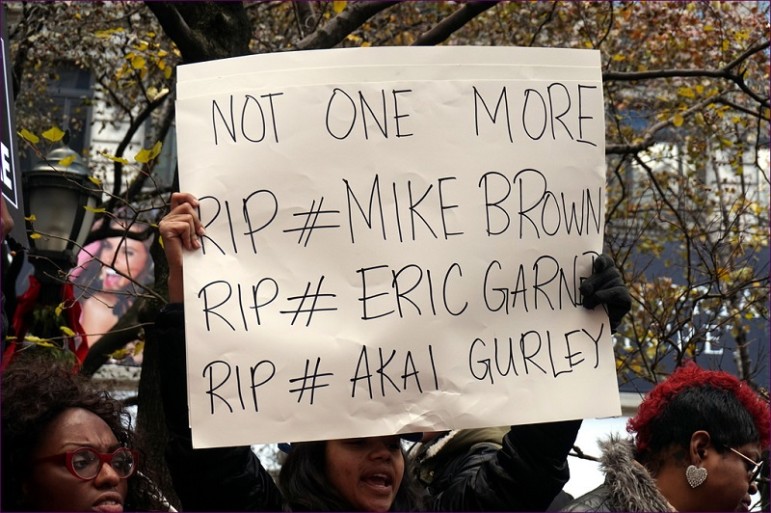
February 10, 2016; New York Times
U.S. Attorney General Loretta Lynch and the Department of Justice lost no time in declaring that it would file suit against the city of Ferguson, Missouri, after the city council on Tuesday night unanimously voted to reject the agreement negotiated between city officials and the DOJ to overhaul its police and courts to redress problems surfaced in the wake of the police shooting of Michael Brown.
“Their decision leaves us no further choice,” said Lynch, adding that city residents “have waited decades for justice. They should not be forced to wait any longer.”
The city council cited concerns about the cost of implementation of reforms, estimated to potentially run from $2.1 million to $3.7 million in the first year. The city budget has been in deficit over the last few years, and some believe that these costs may force it into bankruptcy. But the suit ensures that the city will pay the money, either for reforms or in legal fees, fighting the suit.
The most onerous of the agreement’s requirements were in a salary increase for local police and in a provision that would have required the agreement to be followed even if the city were to outsource its policing. Lynch addressed this last issue, saying, “Our view is the city of Ferguson deserves constitutional policing, no matter who is in charge of the city’s police force.” By striking this provision, Ferguson would be able to “avoid and evade” any efforts at reform of its policing.
The DOJ report on which the rejected agreement was based found, among other things, that African Americans were overwhelmingly the victims in excessive force incidents and that the courts and police cooperated in criminal justice practices that acted as a moneymaking venture for the city. From the DOJ report:
Ferguson’s law enforcement practices are shaped by the City’s focus on revenue rather than by public safety needs. This emphasis on revenue has compromised the institutional character of Ferguson’s police department, contributing to a pattern of unconstitutional policing, and has also shaped its municipal court, leading to procedures that raise due process concerns and inflict unnecessary harm on members of the Ferguson community. Further, Ferguson’s police and municipal court practices both reflect and exacerbate existing racial bias, including racial stereotypes. Ferguson’s own data establish clear racial disparities that adversely impact African Americans. The evidence shows that discriminatory intent is part of the reason for these disparities…
Sign up for our free newsletters
Subscribe to NPQ's newsletters to have our top stories delivered directly to your inbox.
By signing up, you agree to our privacy policy and terms of use, and to receive messages from NPQ and our partners.
The agreement would have required that police would refrain from making arrests without probable cause, shooting at moving cars, or using stun guns as punishment. It also required that the court and police disentangle, and that some laws used primarily against African Americans be repealed.
Earlier this week Dan Webb, the city’s attorney, warned there was “no chance the DOJ will not file a lawsuit” if the deal were rejected, so the city councilors were well warned.
Kriston Capps of the Atlantic’s CityLab writes:
The answer may well be that Ferguson is not viable in the long term, no matter what decisions its leaders make. Bankruptcy is not a certain outcome, but it’s a plausible one. The scope of the problems facing the cities that make up St. Louis County—from Ferguson to Florissant to Bel-Ridge and dozens of other communities that all face the same dismal long-term outlook—are beyond the means of any one of them to solve on its own.
Which is why municipal consolidation still looks like the only real answer for Ferguson (and Florissant, and Bel-Ridge, and so on). But neither the Justice Department nor the Ferguson City Council can bring that solution. For now, the future of Ferguson is headed, unhappily, to the courts.
But Lynch’s position is that constitutional protections are non-negotiable, and Ferguson now has to take on the expense of dismantling what Ta-Nehisi Coates vividly described in the Atlantic as a “system of plunder.”
—Ruth McCambridge












